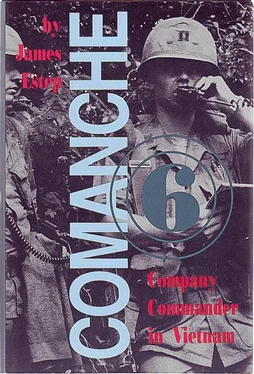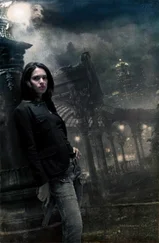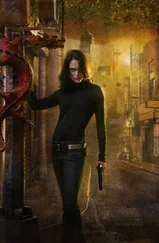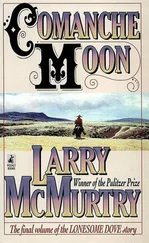And, I thought to myself, if our straight and true of God’s squad carried a bottle of Wild Turkey in their kits, they might very well find a whole new world in chaplain-patient relationships opening up to them.
Mary introduced me to a couple of my fellow patients, while others, at one point or another, introduced themselves. Later, her seductive protiage from atop the table came over, and we talked for awhile. Her name was Susan, and her bedside manner was light-years ahead of that of our chaplain brethren.
“Looks like you’re running on empty there, Jim,” Mary said. “Would you like another?”
“Uh… a tad, please.”
The evening wore on and eventually, finally, wore out. Before Mary departed, I asked her why she did this, why make these time-consuming and, I would imagine, somewhat expensive visits to the different wards at Walter Reed.
She merely smiled, winked, and said, “Well, it keeps me off the streets. See you in a week or so. Hang tight.”
Yeah, just gotta hang tight, I told myself. I’ll survive this tour; it’s no different from any other. Just another tour of duty.
Within a short time, I discovered Walter Reed’s orthopedics ward to be similar to any other well-functioning military organization. The doctors were without question the best in their profession, as was the nursing staff. And the nurses would do anything in the world for us—well, almost anything, although even on that score some of the alcohol rubs were pretty exciting. As in any well-run military unit, the ward’s underlying philosophy was “work hard, play hard.” The staff tolerated no action on our part that might compromise an early recovery and release. If we were scheduled for two hours of torture in physical therapy, we had no choice but to endure those two hours of pain. If we were granted a pass or placed on convalescent leave, we were wise to return to the ward on time and without having reinjured our wounds in some drunken fall.
However, we were allowed to come and go pretty much as we pleased; there were no staff-imposed curfews, visiting hours were essentially all hours of the day and much of the night, and the nurses rarely took notice of our private class VI (booze) stocks.
Time passed relatively quickly. There were the good days—those days between operations, the most mobile and pain-free time. And bad days—those immediately following an operation, the ones in which you slept with the animal pain.
Roommates came and went, some spending only weeks on the ward, others remaining for a year or more. One of those who had been there the longest was a seasoned but young infantry captain named Steve.
Although missing only a single foot, due to prosthesis problems and a nagging on-again, off-again bone infection, he was still a member of the “pit crew” a year or so after having been wounded. Ivy League educated, he was looked upon as the pit’s intellectual.
Dave, a young first lieutenant, was another of the ward’s longterm patients. Once a warrior with the famed 173d Airborne Brigade, he had lost his arms and a large portion of his face in a one-sided encounter with a “bouncing betty”—a land mine triggered to explode at chest level.
On the last day of March, a Sunday, the three of us lay in the pit, listening to our commander in chief, President Lyndon Johnson, address his fellow Americans on national television. During the course of his speech, he made two startling announcements, the first being that he had decided to unilaterally deescalate our involvement in the war, hoping this initiative would lead to meaningful peace talks.
He told us that as a first step in his strategy of deescalation, he had ordered the immediate cessation of nearly all air action against North Vietnam. He emphasized that this was but a first step and that the United States would substantially reduce “the present level of hostilities.”
“Now what the fuck does that mean?” I asked, angrily.
“Means he’s throwing in the towel,” Steve replied dryly. “Means we’ve lost the war, my friend.”
“My ass! Hey, you all been here too long. I mean, having just returned from Nam, I can tell you we’re kicking Charlie’s ass up one side and down the other. This peace talk thing ain’t gonna do anything but give Charlie breathing room to recoup.”
I paused as the two of them stared at me, seemingly unable to comprehend what I had just said. For a moment, it was as if we might have fought in two different wars. On reflection, I decided we had. They’d spent the last year or more watching the evening predictions “Of gloom and doom” on television while our country’s “vocal minority” marched on the Pentagon and across our colleges’ campuses. I had missed all of that. I, along with other recently inducted members of the pit crew, had seen our soldiers rout General Giap’s army in its last-ditch attempt to militarily turn the tables on us.
“Hey, guys, I mean it! We’re winning big time. Uh… at least before hearing our commander in chief just now, I thought we were winning.”
“Well, Jim,” Steve said, smiling, “you’re in notable company on that score, ‘cause that’s exactly what Walter Cronkite recently said.”
“Know what I think it is?” I said, still trying to grasp a glimmer of hope from the president’s pronouncement. “It’s a ploy! That’s what it is, and a goddamn good one, too, now that I think of it. Se!C, LBJ and his people aren’t dumb. They know we kicked the shit out of Charlie during Tet, know we virtually eliminated the Cong. It’s a brand-new war, one with opportunities we never had before, and he’s going for the win! In the meantime, however, he’s got this domestic mess on his back, which means he’s gotta go about this thing with a bit of finesse. So today he up and announces to the American people—whole world in fact—that all he really wants is peace, and in pursuit of peace, even though Charlie violated the Tet truce, even though they committed all those atrocities in Hue and so forth, he’s gonna unilaterally stop the bombing and invite North Vietnam to negotiate an ‘end to this long and bloody war.” See, he puts the ball in their court, and we all know that Uncle Ho ain’t about to negotiate his way out of South Vietnam, so he just keeps on fighting. Then, say a month or so from now, LBJ comes back on television and says, ‘Ma fellow ‘Mericans, I’ve tried, Lord knows I’ve tried. I’ve taken every avenue in search of peace, given our vicious and uncompromising enemy every opportunity, all in my undying quest for a just peace, but alas’. so on and so forth. Then he gets to the ‘I therefore have no alternative but to’ part of his speech and tells us he’s gonna bomb ’em back to the Stone Age and then send in the 82d to police up the rubble!”
I paused, letting their subtle laughter subside, and then asked, “Well, what do you think?”
“What do I think?” Steve asked. “I think you’re either grasping at straws or out of your goddamn mind!”
I noted that our newly assigned, legless helicopter pilot didn’t share in our assessment of the president’s announcement or my fantasies regarding the reason for it. He lay there with stony tears on his cheeks and mumbled, as if to himself, “Then what was it all for?”
Our commander in chief’s second startling proclamation was that he would not seek his party’s nomination for another term as our president. This was fine with us.
One pleasant early summer afternoon, I awoke from a short nap to find Captain, exSergeant Major Cooper, dressed in hospital garb, sitting in a chair next to my bed.
“Hi there, Big Jim,” he said, grinning.
“Well, sonofabitch!” I said, astonished at seeing him. “We heard you bought it just after getting that iron coffin company of yours.”
Читать дальше












